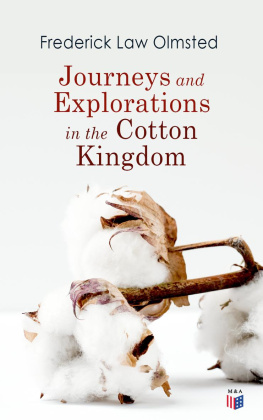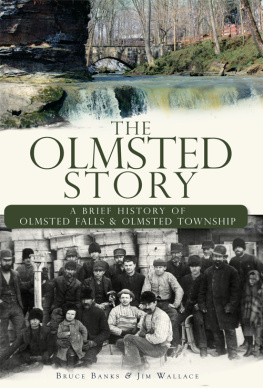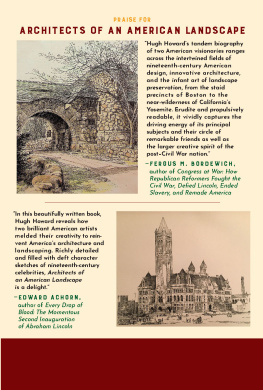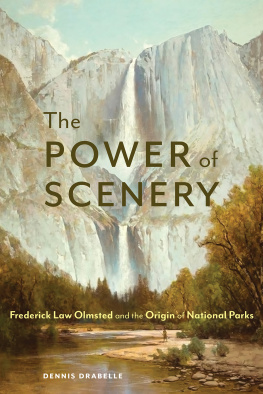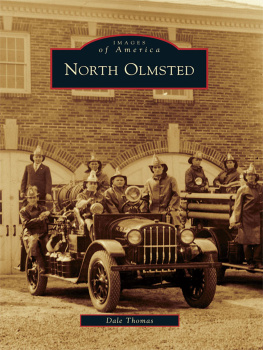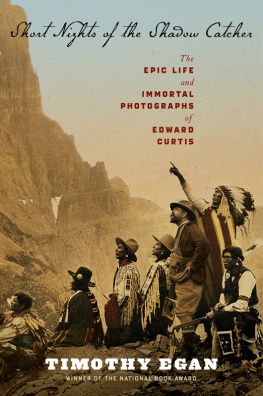Maine-based author, historian, and speaker Jeffrey Ryan has a passion for exploring the outdoors on foot and along the dusty paths of history. His travels on thousands of miles on both Americas most famous and lesser-known trails have inspired several books and a documentary film project titled Voices of the Wilderness.
When he is not researching, writing, or hiking, Ryan can be found exploring the back roads of the USA and Canada in his vintage 1985 VW camper. Learn more at JeffRyanAuthor.com.
I HAVE TWO PREFERRED MODES OF TRAVELON FOOT OR BY 1985 V OLKSWAGEN Vanagon. Friends often observe that both move at roughly the same speed. They have a point.
I am happiest when I am living at a pace that allows me to take in things more fully, if not conventionally, in this day of high-speed and extreme everything. Which brings me back to my Vanagon. Researching this book has taken me to some remarkable places. Sometimes it was to sift through archives (Knoxville, Tennessee, and the National Conservation Training Center in West Virginia come to mind), but more often it was to visit the places where Americas conservation stories took root: Woodstock, Vermont; Rainy Lake, Minnesota; Tionesta, Pennsylvania; Burlington, Iowa; Baraboo, Wisconsin; Milford, Pennsylvaniathe list goes on. Being in the places where George Perkins Marsh, Ernest Oberholtzer, Howard Zahniser, Aldo Leopold, Gifford Pinchot, and the other leaders of Americas conservation movement were raised gave me a glimpse into why preserving the world around them was so important.
Along the way, I have met literally hundreds of researchers, restaurant owners, VW mechanics, good Samaritans, and well-wishers who have cheered me on. Its satisfying and humbling to know there are so many good people in this world willing to lend a hand.
Its always perilous to single a few people out, but Id be remiss if I didnt thank Dr. Mark Madison, the talented and generous historian at the National Conservation Training Center; Rebecca Otto, executive director of the Ernest C. Oberholtzer Foundation; Buddy Huffaker, board president and executive director of the Aldo Leopold Foundation; and Mark Granlund, Minnesota artist extraordinaire, who have all helped me keep my research coordinates pointed in the right direction and leant their support.
The article below, published in the Journal of the American Institute of Architects in October 1921, launched the concept of the Appalachian Trail into the public consciousness.
An Appalachian Trail: A Project in Regional Planning
By Benton MacKaye
Something has been going on in this country during the past few strenuous years which, in the din of war and general upheaval, has been somewhat lost from the public mind. It is the slow quiet development of a special type of communitythe recreation camp. It is something neither urban nor rural. It escapes the hecticness of the one, the loneliness of the other. And it escapes also the common curse of boththe high powered tension of the economic scramble. All communities face an economic problem, but in different ways. The camp faces it through cooperation and mutual helpfulness, the others through competition and mutual fleecing.
We civilized ones also, whether urban or rural, are potentially as helpless as canaries in a cage. The ability to cope with nature directlyunshielded by the weakening wall of civilizationis one of the admitted needs of modern times. It is the goal of the scouting movement. Not that we want to return to the plights of our Paleolithic ancestors. We want the strength of progress without its puniness. We want its conveniences without its fopperies. The ability to sleep and cook in the open is a good step forward. But scouting should not stop there. This is but a faint step from our canary bird existence. It should strike much deeper than this. We should seek the ability not only to cook food but to raise food with less aidand less hindrancefrom the complexities of commerce. And this is becoming daily of increasing practical importance. Scouting, then, has its vital connection with the problem of living.
A New Approach to the Problem of Living
The problem of living is at bottom an economic one. And this alone is bad enough, even in a period of so-called normalcy. But living has been considerably complicated of late in various waysby war, by questions of personal liberty, and by menaces of one kind or another. There have been created bitter antagonisms. We are undergoing also the bad combination of high prices and unemployment. This situation is world widethe result of a world-wide war.
It is no purpose of this little article to indulge in coping with any of these big questions. The nearest we come to such effrontery is to suggest more comfortable seats and more fresh air for those who have to consider them. A great professor once said that optimism is oxygen. Are we getting all the oxygen we might for the big tasks before us?
Let us wait, we are told, til we solve this cussed labor problem. Then well have the leisure to do great things.
But suppose that while we wait the chance for doing them is passed?
It goes without saying we should work upon the labor problem. Not just the matter of capital and labor but the real labor problemhow to reduce the days drudgery. The toil and chore of life should, as labor saving devices increase, form a diminishing proportion of the average day and year. Leisure and higher pursuits will thereby come to form an increasing proportion of our lives.
But will leisure mean something higher? Here is a question indeed. The coming of leisure in itself will create its own problem. As the problem of labor solves, that of leisure arises. There seems to be no escape from problems. We have neglected to improve the leisure which should be ours as a result of replacing stone and bronze with iron and steam. Very likely we have been cheated out of the bulk of this leisure. The efficiency of modern industry has been placed at 25 per cent of its reasonable possibilities. This may be too low or too high. But the leisure that we do succeed in gettingis this developed to an efficiency much higher?
The customary approach to the problem of living relates to work rather than play. Can we increase the efficiency of our working time? Can we solve the problem of labor? If so we can widen the opportunities of our leisure. The new approach reverses this mental process. Can we increase the efficiency of our spare time? Can we develop opportunities for leisure as an aid in solving the problem of labor?
An Undeveloped PowerOur Spare Time
How much spare time have we, and how much power does it represent?
The great body of working peoplethe industrial workers, the farmers, and the housewiveshave no allotted spare time or vacations. The business clerk usually gets two weeks leave, with pay, each year. The U.S. Government clerk gets thirty days. The business man is likely to give himself two weeks or a month. Farmers can get off for a week or more at a time by doubling up on one anothers chores. Housewives might do likewise.
As to the industrial workerin mine or factoryhis average vacation is all too long. For it is leave of absence without pay. According to recent official figures the average industrial worker in the United States, during normal times, is employed in industry about four fifths of the timesay 42 weeks in the year. The other ten weeks he is employed in seeking employment.
The proportionate time for true leisure of the average adult American appears, then, to be meagre indeed. But a goodly portion have (or take) about two weeks in the year. The industrial worker during the estimated ten weeks between jobs must of course go on eating and living. His savings may enable him to do this without undue worry. He could, if he felt he could spare the time from job hunting, and if suitable facilities were provided, take two weeks of his ten on a real vacation. In one way or another, therefore, the average adult in this country could devote each year a period of about two weeks in doing the things of his own choice.


